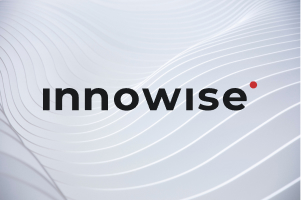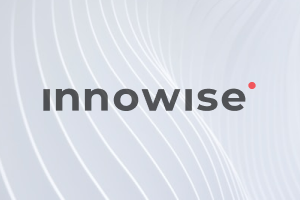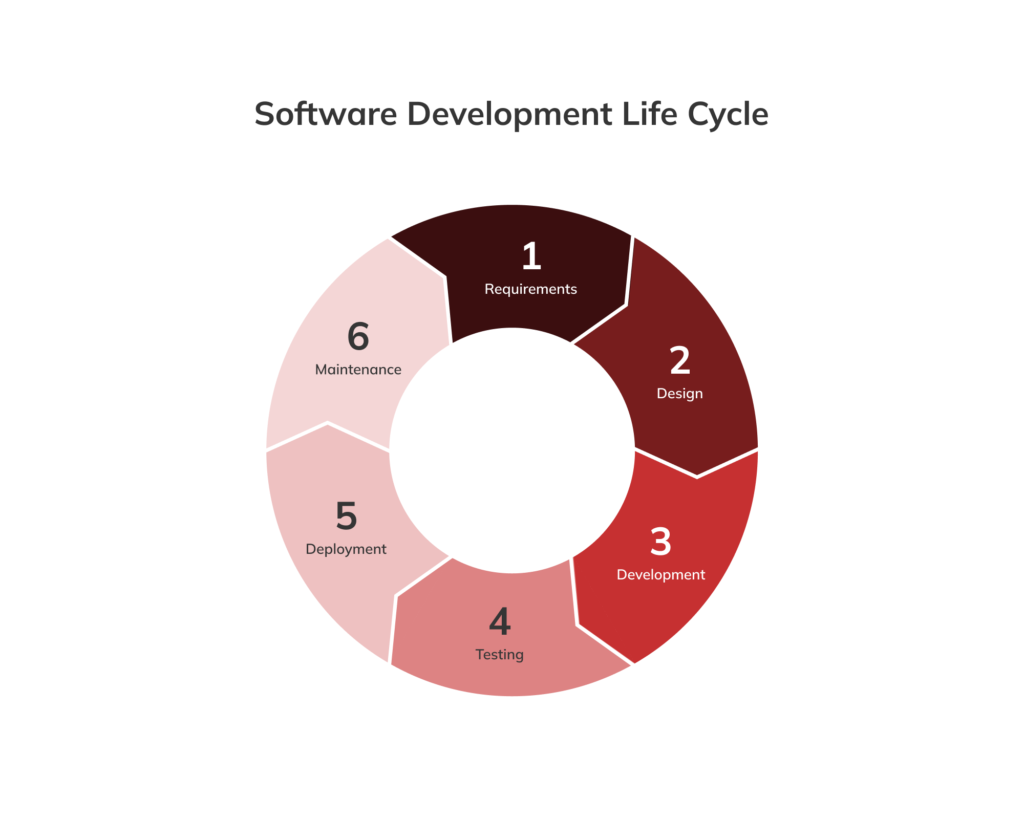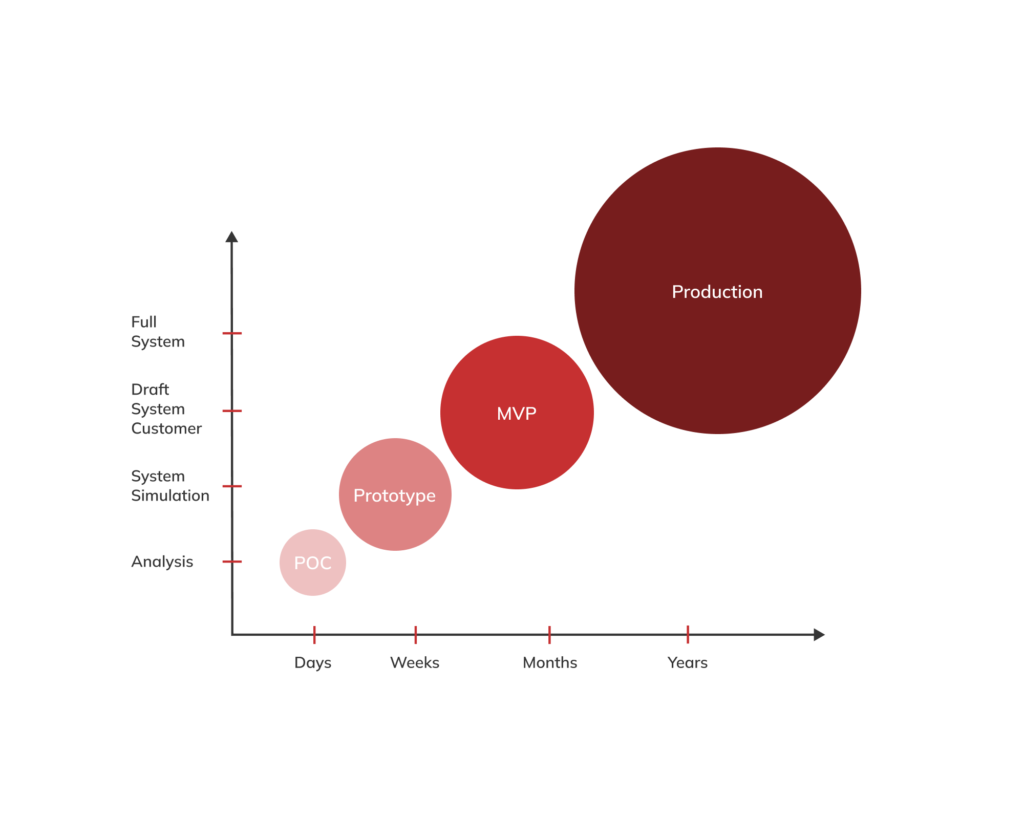Your message has been sent.
We’ll process your request and contact you back as soon as possible.
The form has been successfully submitted.
Please find further information in your mailbox.


As a founder, you are an expert in your field. There’s a good chance you’ve had your light-bulb moment conceiving a tech idea that could disrupt your industry. Perhaps you’re even considering building an MVP.
However, there is no such thing as solo success.
So, as most entrepreneurs do, you’ve likely started searching for a technical co-founder to create your ideal project team.
The problem is that ideas on napkins don’t attract top talent.
It’s a classic dilemma – with a limited budget, you need top talent to launch your product before your competitors do. Compared to large companies, small businesses often suffer way more from an aggressive business environment, financial limitations, and a hazy future vision. If left without profound support, startups will undoubtedly fail to reach project goals and fall short of their business objectives.
That’s why so many startuppers hire software development companies to bring their business ideas to life.
That’s exactly what we do at Innowise. Having worked with startups for the past 17 years, we have developed custom software processes that have been tried and tested.
Throughout this article, we will cover the best practices we’ve developed for working with startups and share a few success stories.
Many actions can be spontaneous, but software development requires step-by-step progression through certain stages known as SDLC (software development life cycle), which commonly include:




The business environment is especially unforgiving to small companies.
This is why you need skilled development teams with established workflows to handle your project.
Not to be unfounded, here are three fine examples of Innowise’s partnerships with startups when we turned bare business newbies into ones standing firmly on their feet.
Innowise considers foremost technologies like Blockchain and NFT as top priorities. Having gained an undeniable level of expertise, our software engineers often act not just like ordinary executors but as decentralized app evangelists. So, when a promising American startup, Paycheck, opted for us, looking for experts in decentralized finance platforms operated by native tokens and supporting the DeFi ecosystem, we were ready to give a fast start.
During the project, our team compiled the tokenomics and deployed token contracts using Solidity, Hardhat, OpenZeppelin, and many other Web 3.0 tools. Moreover, our skilled software engineers developed dApps for users to manage their digital assets.
At the same time, our marketing specialists created the content for landing pages and the project whitepaper and participated in launching the bug bounty program.
Thanks to our unmatched experts, the project is currently successfully tested and will be deployed on the Mainnet soon. As a result, our seasoned team opened the gate to the innovative world a bit wider.
Oftentimes, developing a software project is not just about crafting solutions from scratch but fixing the errors of others. In spring, our company negotiated with a young French company that produces gyroscopes – sights for oil drilling. The client wanted to develop an AR model to participate in the international roadshow in the USA and demonstrate its impressive achievements in the engineering industry.
Unexpectedly, the customer decided to choose another vendor that suggested lower rates. Frankly speaking, selecting a cheaper contractor might be reasonable for a startup struggling with financial independence. However, lower rates do not always bring flawless quality.
Several months later, the client unexpectedly popped up, facing the drawbacks of working with the previous vendor. Not only did the app have limited functionality without the possibility of scaling up, but it also contained bugs and vulnerabilities.
As a result, Innowise eliminated all the bottlenecks and improved the app, proving that outsourcing is not only about saving money.
Getting back to Web 3.0 technologies, Innowise partnered with another American startup, rendering top-notch Blockchain and NFT services. The customer wanted to build a white-label NFT marketplace customized for each new client, allowing users to purchase and trade tokens. Accomplishing the project was the finest proof of our profound expertise since our team developed custom NFT tokens, created animated 3D assets, ensured the possibility to trade tokens through smart contracts, and implemented the functionality of purchasing them by bank cards or cryptocurrencies. Moreover, we designed an intuitive, user-friendly interface to maintain the target audience’s loyalty and attract new customers.
As a result, our client received a custom web and mobile platform boasting extensive functionality and sophisticated design. The solution empowered their market position and enabled them to contribute to the decentralized ecosystem of the future.

Innowise has the greatest in-depth expertise in streamlining the software development process for startups. Regardless of the industry or solution complexity, our skilled specialists know how to seize the opportunity and bring value to the business.
We frequently guide small startups through the troublesome path of the software development process and turn them into prosperous companies with high financial indicators and stable positions in the market.
Customers choose Innowise because we advocate for:
Launching a startup is definitely a controversial advantage that might either end up in a booming success or disappointment. To get things right, small businesses should comprehend the objectives of the software development process, adhere to the stages of SDLC, and, most of all, stick to budget frames. Approaching a reliable vendor can ensure that all of these criteria are met because a trustworthy service provider advocates for the overall project’s success and takes full responsibility for the result. If you want your business to thrive, Innowise is ready to lend a hand and turn even the boldest plans into thriving solutions.
Rate this article:
4.8/5 (45 reviews)












Your message has been sent.
We’ll process your request and contact you back as soon as possible.

By signing up you agree to our Privacy Policy, including the use of cookies and transfer of your personal information.